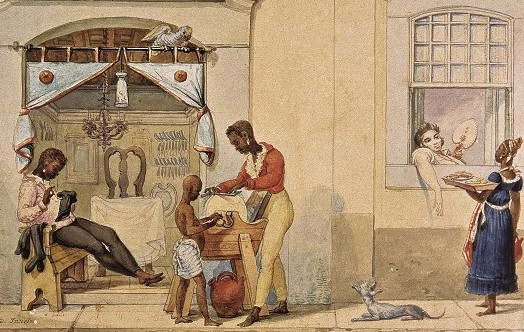PRIVACY network project 'Historical Notions of Privacy in Latin America'

Our PRIVACY network project 'Historical Notions of Privacy in Latin America' is now well underway. Several online seminars have taken place in the spring of 2021. These seminars have featured speakers from both the University of Copenhagen and the postgraduate programme of the history department at the Universidade Federal de Santa Maria in Brazil.
Postdoctoral researcher Natacha Klein Käfer and Prof. Mette Birkedal Bruun initiated the project in 2020 and secured funding from the Danish Agency for Science and Higher Education, International Network Programme.
Natacha Klein Käfer is from Brazil, and her involvement in the Latin American Privacy Studies project has had a huge impact not only on the project but also on her as a scholar:

"It is a privilege to be able to bring together the different academic traditions that have influenced me so much in my career. Being a Brazilian scholar who has operated for ten years in Europe, it is clear to me that the global academic community has only to gain from these encounters. Expanding the field of privacy studies to a global perspective, especially one that highlights the importance and expertise of the Global South, is a crucial step forward, and it is a delight to be able to take this step together with such high-calibre scholars!"
The project’s first scheduled conference was launched in September with the keynote lecture 'Privacy and the private as analytical categories in early modern studies' by Prof. Mette Birkedal Bruun.
The full lecture can be viewed below. The video also includes an opening remark by Prof. Mauri Löbler. The talk is in Portuguese. However, a transcription in English can be found below the video.
"It is a great honour and fills me with joy to be part of this event together with the postgraduate programme in history at the Universidade Federal de Santa Maria and the Centre for Privacy Studies of the University of Copenhagen.
I feel very happy and accomplished when our courses and research groups reach the level of maturity that this partnership represents to our postgraduate programme in history. We can see that this programme will move forward despite all problems we face, not to mention the pandemic. I trust a great deal in this group of scholars and salute our speaker today, coming from the Centre for Privacy Studies of the University of Copenhagen, for accepting this partnership, which is very important to us.
Regarding the lecture and conference subject, I will leave explaining it to the specialist, who knows much better than me how to tackle these questions. I would like to take advantage of the presence of members of the international academic community and ask for your help, as we are going through a challenging moment in researching humanities and social sciences in our country. We are constantly under attack through the constant reduction of funds, and, most of all, through the destruction of everything that humanities and social sciences aim to build. We are criticised as being superfluous sciences, or even prejudicial to a "pure" society, whatever that means. So, I ask you to keep an eye out for the news of our South American country. Each measure of support we receive from abroad is a breath of hope to us, that we can stop going backwards in issues that I used to believe we had already overcome. Like other countries in the world, we have retrogressed a lot in matters of democracy and social justice. Forgive me for venting and asking that you get involved in this problem. Thanks once again to Prof Mette Birkedal Bruun for her lecture, in the name of Universidade Federal de Santa Maria."
The conference will take place online on 25, 26 and 27 November.
Find the full conference programme and register here
